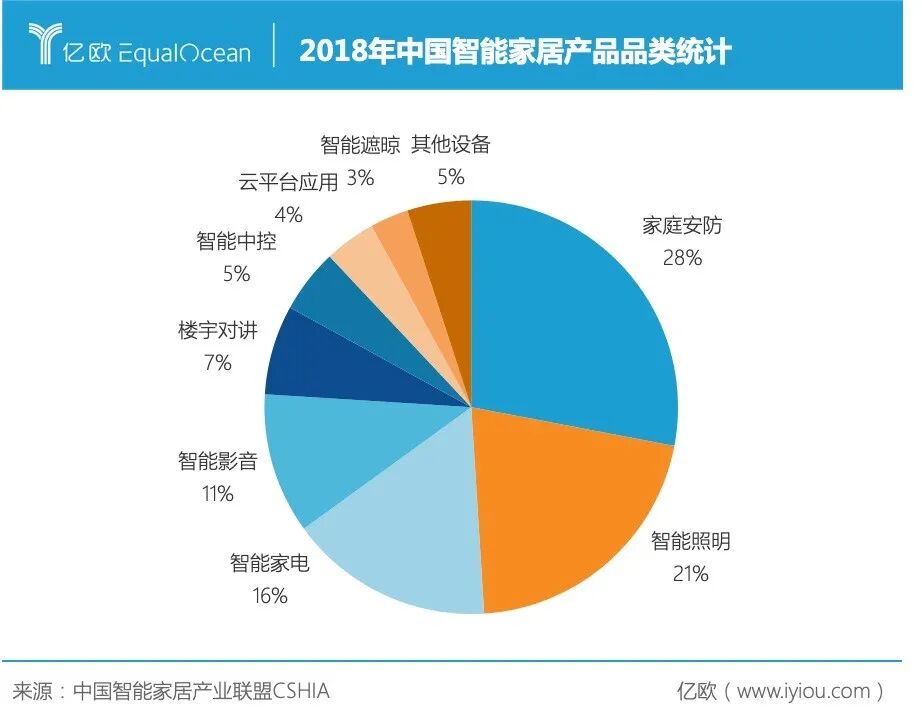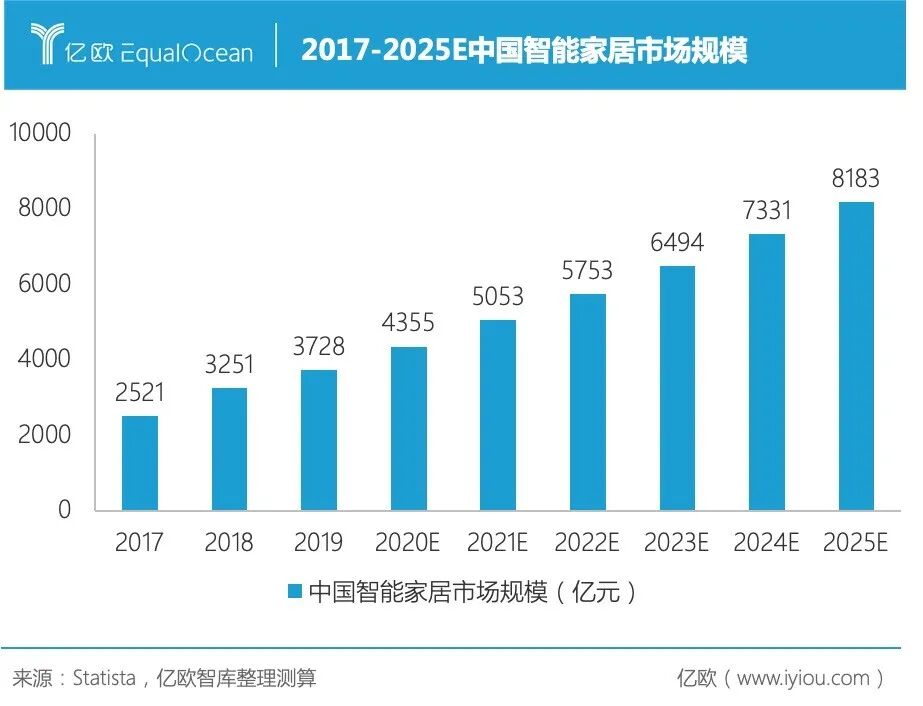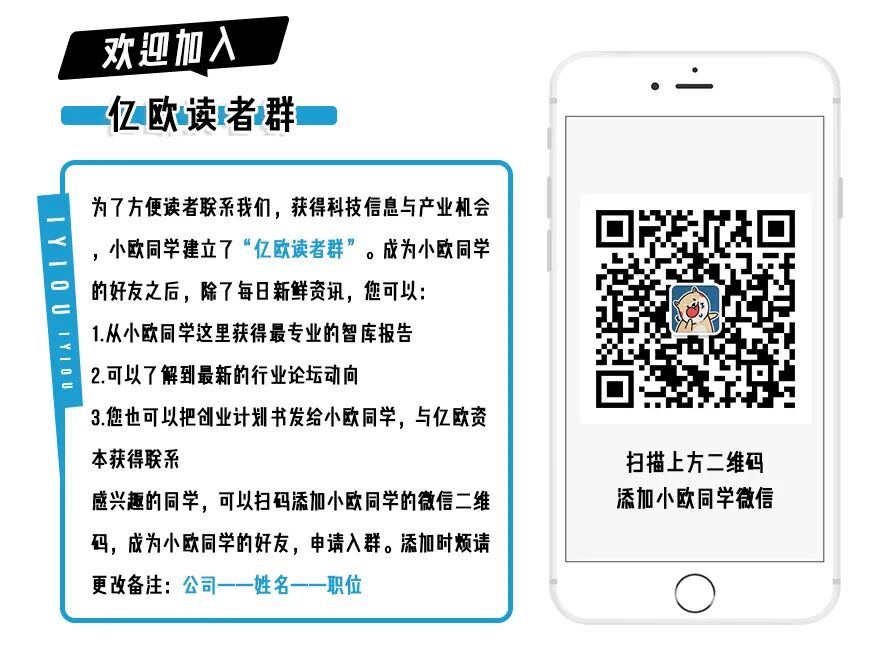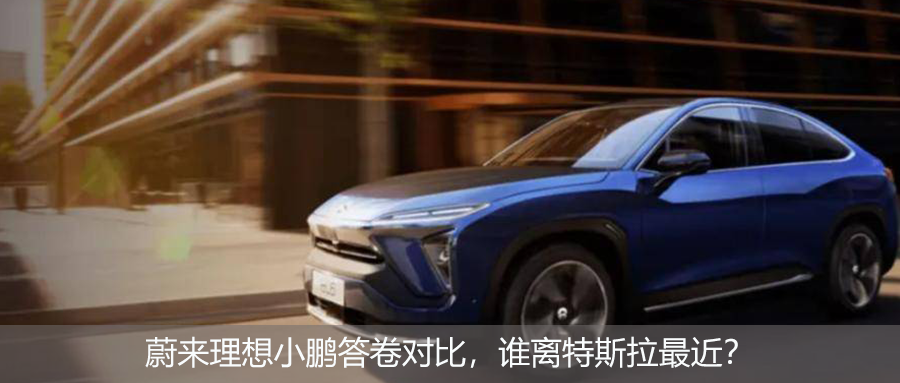
Starting from civil security, companies like YingShi and LeCheng are stirring up an ecological storm in the smart home sector.
Full text: 3450 words, approximately 7 minutes reading time
Written by | Xia Yizhe
Edited by | Chang Liang, Gu Yan
The core viewpoints of this article
1. Relying on their parent company’s security background, YingShi and LeCheng have breached the defenses of internet companies like Xiaomi and 360 in the smart camera product sector;
2. The demand for civil security devices represented by cameras is limited, lacking a sufficiently large market space;
3. YingShi and LeCheng have begun to expand their brands and ecological layouts, but whether they can integrate into the larger industry ecosystem remains to be seen.
When it comes to the smart home ecosystem, most consumers immediately think of hardware manufacturers like Xiaomi’s Mijia, Haier’s Smart Home, and Midea’s Smart Home. The giants either control traffic entry points or hardware barriers. In the fierce ecological competition, other manufacturers are becoming the objects of ecological integration.
Can a single product category establish a foothold in the smart home race? The rise of security manufacturers provides an excellent example.
Hikvision’s YingShi and Dahua’s LeCheng, leveraging their experience in the security monitoring field, have gained recognition in the smart camera sector, already ranking alongside internet players like Xiaomi and 360. YingShi reported revenue exceeding 2.5 billion yuan in 2019 and has plans for independent listing.
After breaking into the smart camera market, YingShi and LeCheng continue to expand their product categories in the smart home sector, adapting to a wider range of scenarios. With YingShi proposing the “1+4+N” smart home IoT ecosystem and LeCheng upgrading to “1+2+N” for its ecological concept of IoT Cloud + V3.0, both companies are gradually becoming emerging forces in the IoT ecosystem.

Internet Companies Targeting Home Security
In 2001, Dahua and Hikvision were established amidst the “encirclement and suppression” by Japanese and American security manufacturers, quickly gaining fame in the domestic security market with their DVR and compression card products.
Although mature security monitoring products existed 20 years ago, the invention of the smart camera did not belong to veterans like Panasonic or Sony, nor to new security players like Hikvision or Dahua; it was fundamentally an internet product.
Initially, American software engineer Greg Duffy just wanted to help his father set up a camera monitoring system at home, but faced numerous obstacles. Thus, he and Aamir Virani disassembled and modified the camera to enable remote real-time viewing.
Starting from the modified camera, the two founded Dropcam in 2009, which quickly became popular in the United States. In 2014, Dropcam was acquired by Google’s smart home brand Nest for $550 million.
Remote monitoring, cloud storage services, two-way communication, sound and motion detection… Dropcam had already explored the main “playbook” for smart cameras.
China’s security giants responded swiftly. As early as 2013, Hikvision launched the “YingShi” brand and released a series of newly designed internet cameras. In 2014, Dahua also launched the “LeCheng” brand, targeting civil smart internet.

With rapid growth, diverse categories, and strong app engagement, home security represented by smart cameras quickly attracted the attention of internet companies. Xiaomi’s ecosystem chain product planning director Sun Peng stated that cameras not only have a broad and rapidly growing market but also rely on apps to enhance the activity of the Mijia app.
From motion detection to intercom functions, smart cameras can create many interactive scenarios with users, which is also a strength of internet companies. Even when Dropcam was gaining popularity, its founders believed that Dropcam was not just about traditional real-time monitoring of home situations but also about allowing users to stay connected with family and document life.
The data value of images is also a “gold mine” waiting to be tapped. Aamir once revealed that the video upload volume through Dropcam exceeded that of YouTube, and operators could conduct deep learning research through the massive cloud-based video and audio.
However, following this internet product application approach, 360 faced setbacks.
At the end of 2017, a public account published an article questioning that 360’s Waterdrop Live had a large amount of live content from public places. Restaurants, gyms, internet cafes, and other businesses used live streaming to attract customers. Controversially, these cameras were aimed at ordinary consumers, who were not only unwittingly filmed but also subjected to commentary from live chat.
Despite Zhou Hongyi’s claim that the article was “black PR,” Waterdrop Live took down all videos involving personnel movement, but the incident continued to escalate. Especially with some inappropriate video footage repeatedly showing the 360 smart camera logo, it attracted the attention of the national “Sweep Away Pornography and Illegal Publications” office, and the People’s Daily also followed up with commentary. Under pressure, 360 had to completely shut down Waterdrop Live.
Xiaomi’s ecosystem chain company Xiaoyi Technology also faced quality issues.
After the first generation of Xiaoyi action cameras went into mass production, a protruding position on the side port led the Xiaoyi team to choose to manually trim it, resulting in noticeable manual cut marks that triggered numerous user complaints. Xiaomi defined this incident in its “Xiaomi Ecosystem Chain Battlefield Notes” as “a very serious accident.”
Consumers’ high demands for security products have led some internet background manufacturers to withdraw, giving YingShi and LeCheng the opportunity to shine.

The “Security” Brand is Unbreakable
With the endorsement of a “stable” and “reliable” brand, YingShi and LeCheng have successfully completed the transition from B2B to B2C.
On one hand, security companies have been cultivating video monitoring for many years, with “safety” and “stability” always being their trademarks, and the exploration of product functions is not aggressive. YingShi has stated that a good product does not pursue dazzling features; a good product is reflected in solving complex problems with simple methods.
On the other hand, YingShi and LeCheng benefit from the complete industrial chain and technical support of Hikvision and Dahua, allowing them to avoid following the strategies and products of internet players step by step, as their mature supply chain is sufficient to withstand the price attacks from internet companies.
In addition to the brand tone aligning with consumers’ perceptions of smart home security products, YingShi and LeCheng‘s B-end genes also help them expand their customer base from ordinary consumers to individual clients and small businesses, building a scene barrier through solutions.
From the perspective of entering the security field, internet manufacturers like Xiaomi and 360 focus on product thinking, hoping to create a user-friendly home smart camera to integrate into the smart home system. However, YingShi and LeCheng continue the B-end thinking of solutions, aiming to address the scene demands of security.
YingShi‘s initial positioning was as an “internet video business,” primarily serving small businesses, families, and individual clients, with the smart video terminals launched targeting different service objects.
It wasn’t until 2016 that YingShi repositioned itself as an “innovation business centered on smart home,” and in 2019 further adjusted to “become a trusted provider of safe smart home products and IoT platforms,” beginning to expand into commercial scenarios such as apartments, rental houses, and homestays.
LeCheng’s relevant personnel pointed out that thanks to Dahua’s experience and technical accumulation in the security field, LeCheng’s products in the application market are mature products that have been validated in industry and commercial market applications.
Although there are many brands in the current smart camera market, few can balance product stability and excellent experience. Users’ basic demands are “better usability, better aesthetics, and better security,” and LeCheng is iterating and innovating based on this.

How to Break Out of a Single Scenario?
With a solid foundation in security, YingShi and LeCheng have not encountered much resistance in the civil security field; the real challenge may come from category expansion and ecological layout.
From the product layout perspective, security applications and monitoring hardware are the “origins” for YingShi and LeCheng to expand categories. In addition to smart cameras, YingShi and LeCheng can continue to explore civil security products such as smart doorbells and smart locks, with LeCheng even pioneering a new category called “video locks.”
However, from another perspective, a persistent focus on expanding “camera” hardware may give consumers a sense of a scattered product line. For example, YingShi has launched children’s visual watches and children’s care robots, but they did not attract consumer attention.
Therefore, the ecological layout is both a need for YingShi and LeCheng to seek greater development space in the smart home market and a necessity for them to clarify their positioning and determine future development strategies.
In 2019, YingShi proposed the “1+4+N” smart home IoT ecosystem concept. Similar to how Huawei and Xiaomi regard the traffic entry point of smartphones as “1,” YingShi sees its “long board” cloud platform as the core of its IoT ecosystem.
Functionally, YingShi Cloud has already gone beyond providing video services for ordinary users, integrating algorithms for facial analysis, vehicle analysis, etc., while also being an open platform for developers and ecological partners. Clearly, YingShi aims to build an ecosystem that is much larger than just home scenarios.
LeCheng also prioritizes LeCheng Cloud as a strategic focus. Based on LeCheng Cloud, LeCheng released the SaaS platform “LeCheng Hanguang” this year, hoping to work with ecological partners to delve into small and micro application scenarios and develop core application functions for typical scenarios, ultimately opening successful and mature application functions to similar scenario applications.

However, from the perspective of the smart home ecosystem, YingShi and LeCheng do not hold an advantage.
Among the young consumer group that enjoys trying new things, smartphone giants control the traffic entry point of smart phones. Large appliances like TVs, refrigerators, and washing machines are essential in home scenarios, and traditional appliance giants have sufficient technical barriers. In contrast, civil security products like smart cameras are not as dominant.
In elderly home scenarios, due to the need for children to monitor their elderly parents, smart cameras and smart doorbells are expected to become some of the few essential smart home products for elderly families.
However, according to Zhou Yongte, a partner at Boheng Investment, home is an exaggerated pseudo-demand, and personal portable care devices can completely replace many functions of home cameras.
Investment manager Zhu Di from Gaolue Capital expressed a similar view, stating that the image data conveyed by cameras is one of the few types of information that can be directly processed by the human eye, possessing its uniqueness. For the entire smart home platform, it must be included, but there won’t be significant differences among various brands.
In short, the demand for civil security products from YingShi and LeCheng is limited, and their current positioning resembles a small ecosystem addressing security needs within the larger smart home ecosystem.
Regarding the current limitations in their product lines, both YingShi and LeCheng have expressed an attitude of embracing an open ecosystem. LeCheng believes that professionals should do professional things, and its ecosystem does not conflict with those of other companies, leaving many opportunities for future collaboration. YingShi believes that there are many diverse forms of cooperation with other manufacturers, such as embedding and interconnecting software and hardware modules, and co-creating new forms of smart home products.
However, the leading ecological platforms in smart home have already emerged, and an open and inclusive ecosystem is the ultimate goal of industry development. YingShi and LeCheng have proposed self-consistent ecological concepts, but they still need to be tested by the integration of the entire home ecosystem.
Acknowledgments
Due to space limitations, not all content could be included, but thanks to many professionals for providing valuable insights and rich case studies during the writing of this article, especially thanks to (in no particular order):
Relevant personnel from YingShi and LeCheng, Zhou Yongte, partner at Boheng Investment, Zhu Di, investment manager at Gaolue Capital, and two investors from Wenjing Yisheng and Dayu Zhenghe Capital.
This article is original to Yiou. To apply for article authorization, please reply “reprint” in the background and contact the relevant operations personnel. Unauthorized reproduction is prohibited.

RECOMMENDED READINGS




